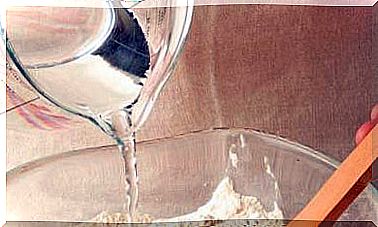6 Treatments To Combat The Winter Blues
Seasonal affective disorder is linked to a reduction in sun exposure and an alteration in well-being hormones.

We are in the middle of winter, it is cold, the sun sets in the middle of the afternoon and I do not feel like leaving the house, I better stay here without doing anything. Who has not been invaded by sadness at some time?
If this happens to us every day, and we also do not find sense in what we do, we possibly suffer from seasonal affective disorder (SAD), more frequent in women than in men and in young adults than in older people or children.
The darkness causes us sadness and emotional lack of control
Winter is the season with the most deaths of elderly people who cannot bear the weight of life and the one with the greatest emotional lack of control, especially in sensitive people, such as those with bipolar syndrome, although those who do not have any emotional pathology can also be affected . In fact, between 1 and 10% of the population suffers from SAD.
Winter blues have to do with the circadian rhythm, the day / night rhythm. The slightest impression of light on our retinas, on the pineal (or pituitary) gland, causes a reduction in the hormones melatonin and serotonin (the hormone of “happiness”), and can induce a depressed mood.
- Melatonin It is the hormone responsible for skin pigmentation, but it also has many functions as a brain neurotransmitter and is greatly affected by the hours of sunlight and by our exposure to light: if in addition to making less sun, we do not leave the house, the problem worsens.
- Serotonin It is the second hormone involved. It is considered a fundamental neurotransmitter in the modulation of the human nervous system, and its levels are clearly influenced by those of melatonin, and consequently, with the hours of sunlight.
- Vitamin D deficiency. All of this can lead to a vitamin D deficiency, which has also been linked to the two previous hormones or neurotransmitters. Supplementation with vitamin D does not seem to improve the problem much, although according to current figures, more than half of people have some type of deficiency.
On many occasions, boredom or seasonal depression leads us to the pantry or the refrigerator, and we tend to overcome this lack of spirit by consuming chocolate or other caloric foods, since the calories give a momentary energetic “high”; although they are a frequent cause of overweight and obesity.
6 natural ways to improve your mood
Seasonal sadness is a temporary disorder. To prevent it from accelerating recovery, we can take the following measures:
- Rose hip infusion. La Rosa canina is exhilarating. To make a pericarp decoction, boil 2-3 teaspoons per cup for 5 min and let it rest for 10 min. Sweeten with honey.
- Take royal jelly or pollen. Take jelly at the beginning of winter and then repeat every 20 days. Take pollen as a non-specific toning supplement, 2 teaspoons daily with breakfast.
- Use saffron. Crocus sativus strands are discreetly soothing and have a moderate antidepressant action. Use them in the kitchen and they will improve your emotional symptoms.
- Try the hypericum. As an antidepressant, only the dry extract of Hypericum perforatum in capsule form is effective . In that case, two to four capsules a day are recommended.
- Essential: sunlight. The best remedy: the sun. The most natural way to avoid a vitamin D deficiency and increase vitamin D levels and improve mood is essentially to sunbathe. In our country, which is generally sunny, we can go to exercise outdoors daily or, at least, on weekends, even on not sunny days, especially if we live in a city.
- Get physical exercise. Increases serotonin levels. Do it, if possible with good views, that is, outdoors. If you’re in pain, exercise more moderately, but don’t give up your health fix on the outside.









